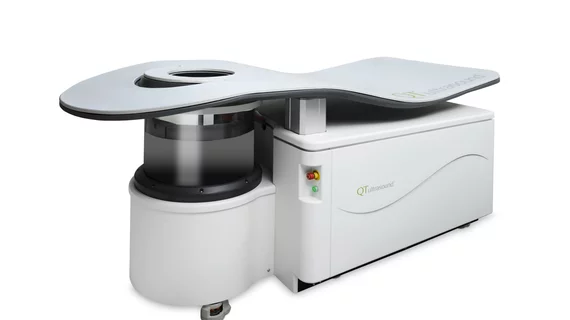Breast ultrasound volume calculator cleared for U.S. sales
The FDA has given its thumbs-up to software that calculates breast fibroglandular tissue volume (FGV) and the ratio of FGV to total breast volume on ultrasound imaging.
QT Imaging of Novato, Calif., announced the green light Sept. 22, saying users of its eponymous sonography machine will now be able to readily track breast tissue’s response to preventive or therapeutic drug therapy and, in screening exams, assess risk for breast cancer.
The announcement quotes breast imaging specialist and QT Imaging medical consultant Elaine Iuanow, MD.
“The ability to determine a therapeutic clinical response using a quantitative volumetric method is crucial for effective and timely treatment of breast cancer and for patients at high risk for developing breast cancer who are receiving hormonal therapy,” Iuanow says. “The FGV tool will allow this assessment to be made early and in follow-up to maximize treatment benefit.”
QT Imaging CEO and founder John Klock, MD, says the approval means the company can “expand the tools available using low frequency transmitted ultrasound volography to serve women, especially those with dense breasts, providing an imaging option that is safe, comfortable, and effective.”
Announcement here.

